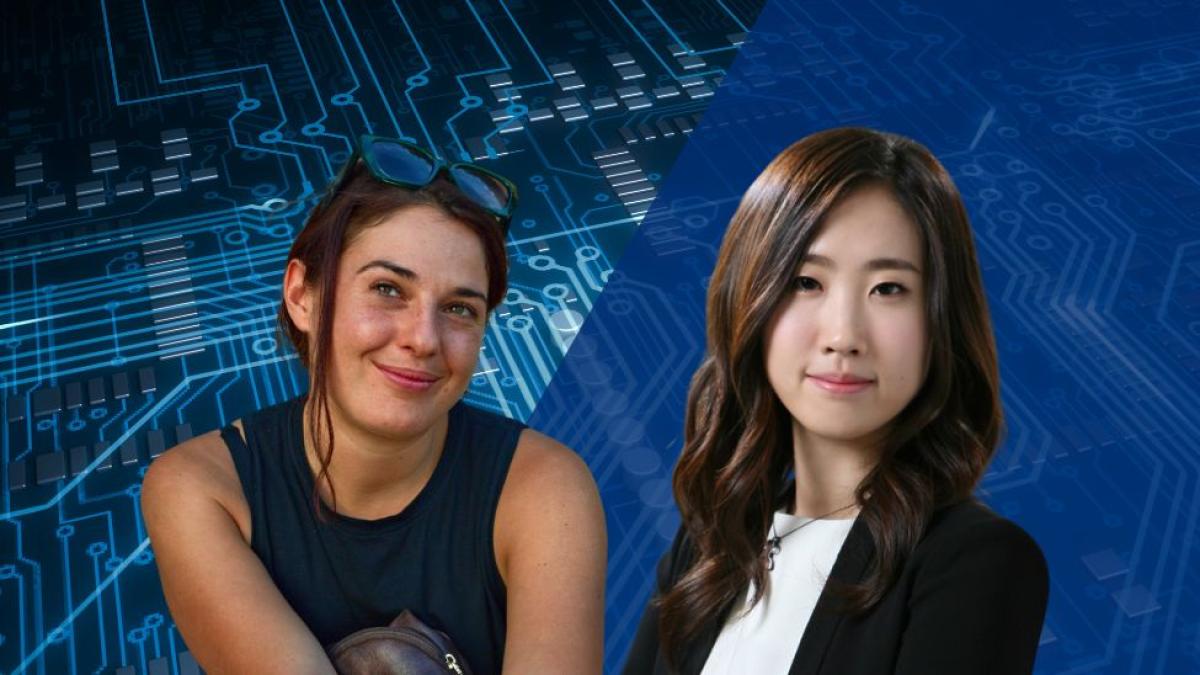Pace University’s Seidenberg School of Computer Science and Information Systems continues to expand its growing focus on artificial intelligence and emerging technologies with the addition of two dynamic new faculty members.
Building with Purpose: From Wall Street to AI Startups

When Vidhi Kothari ’25 began her journey at Pace University, she didn’t expect to become the founder of a startup. But what she did know, was that she wanted to create meaningful value in the world. That desire—to build, to contribute, and to empower through employment—became the foundation for her path as an entrepreneur, innovator, and student in Pace’s BS in Computational Economics program at the Dyson College of Arts and Sciences and the Seidenberg School of Computer Science and Information Systems.
“I realized early on that the more skin I had in the game, the more driven I became,” Vidhi said. At Pace, she found the freedom to explore a wide range of interests, from cybersecurity to finance, renewables, and healthcare. This multidisciplinary experience helped her shape her understanding of what it takes to build and innovate in the real world. Now, Vidhi is building Pigeon, a tool for developers that makes it easy to deploy AI agents to automate workflows for enterprises.
From Wall Street to a Computational Mindset
Since New York is the finance capital of the world, Vidhi naturally gravitated toward the finance industry at first as she spent summers in sales, trading, and investing. "In New York, finance is everywhere," she said. "But I didn’t want to just analyze systems—I wanted to build them."
This realization as a junior at Pace led her to pivot into tech and startups, seeking out innovation in those industries and figuring out ways to bring societal impact through them. Switching majors to Computational Economics was, in Vidhi’s words, a “game-changer.” The program allowed her to merge two worlds—finance and coding—giving her the tools to tackle complex, real-world problems through a technical lens.
The program deepened my understanding of how data drives decisions and innovation in fast-moving industries. It gave me the technical chops to thrive in the startup world.
Connecting Energy, Cybersecurity, and AI
Settled into her new major, Vidhi began examining financial incentives for energy companies in the Southeastern U.S. during a Dyson Summer Research project. But the work led her somewhere she hadn’t anticipated: cybersecurity. “I realized that securing infrastructure was just as critical as the transition to clean energy,” Vidhi said. That insight led her to a cybersecurity class taught by Professor Joe Acampora—and eventually to an internship at Copia Automation, a Series A industrial automation startup.
In that cybersecurity course, a light bulb went off. Vidhi discovered how edge computing could secure industrial systems more efficiently than traditional cloud-based models. “We explored how digital twins and AI agents could detect anomalies at the edge,” she said. “It was a whole new way of thinking about infrastructure protection—decentralized, reliable, and secure.”
An Applied AI course was another key experience in Vidhi’s Pace journey as her machine learning-based solar forecasting project used LSTM (Long Short-Term Memory) networks and further deepened her focus on energy optimization. The project focused on reducing energy costs, and while the group didn’t meet their original goal, it gave Vidhi invaluable insights into how inefficiencies in energy management can have real financial impact.
A Startup is Born
Vidhi’s experience across industries prepared her for what came next: launching Pigeon, a startup that helps enterprises deploy AI agents more efficiently to tackle complex challenges. The inspiration came while working at different startups, where she noticed a surprising problem:
Everyone was building AI agents—but no one was solving how to deploy them.
A conversation with a friend at Bell Labs in Munich crystalized the potential of this opportunity, leading to the birth of Pigeon. Vidhi has a very clear idea of how this startup can change the world: “Think Jarvis from Iron Man. Pigeon is making AI agents a reality, seamlessly integrating them into industries to automate workflows and solve problems like never before.”
A Go-Getter in Action
Vidhi’s path from finance to tech, from student researcher to startup founder, reflects not only her personal ambition but also the kind of multidisciplinary, forward-looking education that defines a Pace Go-Getter. Along this rewarding personal journey, Vidhi’s biggest breakthrough came from realizing that true innovation doesn’t just mean pushing forward, but often requires stepping back and rethinking the problem at hand, building it from a different angles. This is a mindset that she intends to carry into all of her future projects, and that she encourages in others looking to make their mark in tech. “Take risks. The more you invest in an idea, the more meaningful your impact will be.”


